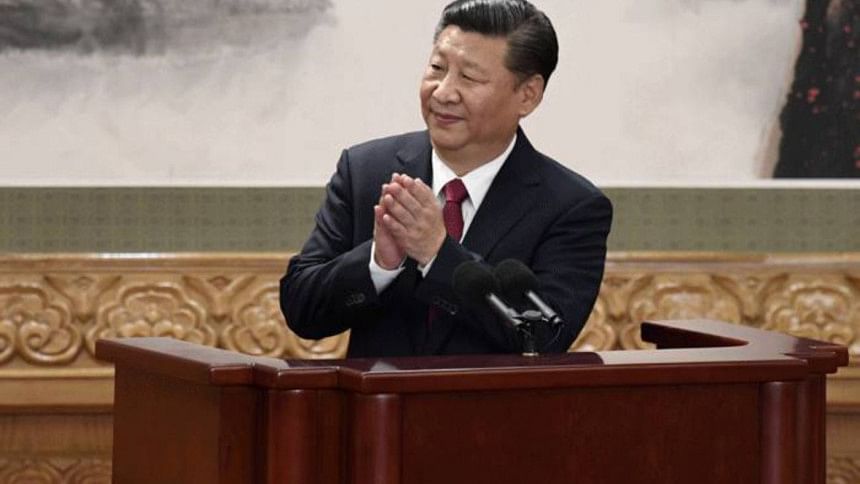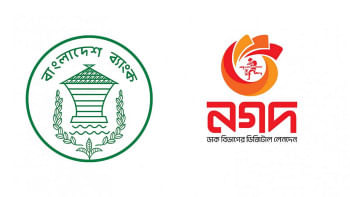What Xi Jinping's 'indefinite term' means for China

Yesterday, China's parliament, in a historic move, abolished presidential term limits enabling President Xi Jinping to rule indefinitely. The process to lift the constitutional provision of two terms began in October 2017 at the 19th session of the Chinese Communist Party (CCP), when no one was designated to succeed Xi Jinping.
The 13th session of China's parliament, known as the National People's Congress (NPC), is currently in session in Beijing. With 2,980 members, the largest unicameral legislative body in the world began the session on March 5, 2018 and is expected to continue for about two weeks. The NPC's mandate includes legislating laws, overseeing the operations of the government, appointing top officials of the state, and above all, amending the constitution of the country.
China has been, in the past, an autocratic state dominated by unpredictability. Transfer of powers from one head of state to another did not follow any set rule or pattern till the reforms introduced by Deng Xiaoping—it all depended on the CCP. Then again political succession within the CCP does not follow clear established procedures.
However, with the national constitution having been revised multiple times and changes in the party charter, it has become rather difficult to predict the succession dynamics at the country's top positions. One clear indicator however is whoever controls the Politburo and chairs the powerful Central Military Commission (CMC) will most likely become president of the country.
Xi Jinping, since becoming Party General Secretary in 2012, quickly concentrated his powers. He controls the Politburo, became chairman of the CMC and leader of the top policymaking committees (economy, national security and foreign affairs). Given his complete control over important state institutions he is in an unassailable position to change the nation's constitution and continue to remain president as long as he likes—or until he is removed by party insiders.
Since the announcement by the Central Committee of CCP on February 26, 2018 that the constitution will be amended, there has been consternation both within China and around the world. The question that is being asked is: Is Xi Jinping heading towards dictatorship? Or will he be a rational leader and step aside once he has turned China into a leading power of the world? Several critical scenarios are circulating in the media.
Critics assert that Xi Jinping becoming president for an indefinite period is a prescription for disaster for China. It will bring political instability within the country and risks China getting into confrontation with other countries. To support their theories, many commentators have referred to the period under Mao Zedong.
Though Mao is revered in China he had thrown the country into chaos and violence repeatedly through his campaigns, which left thousands dead—the Cultural Revolution being one of the most infamous periods. After Mao's death in 1976 there was a fierce succession struggle. By 1978 Deng Xiaoping wrested power from the "Gang of Four" and emerged as the supreme leader of China. Deng Xiaoping then moved to amend the constitution and establish a rules-based system of succession. The revised constitution stipulated that the president could only hold office for two five-year terms. Deng Xiaoping also introduced "collective leadership" to govern China. An age limit was also introduced—no one above the age of 68 shall serve in the Politburo.
The General Secretary of CCP is the ultimate source of power in China. When that position is combined with the presidency its powers become formidable. Deng Xiaoping's established procedures had been working fine until Xi Jinping became president and began to dismantle the succession system.
China's state-run Global Times, upholding the proposed amendment, described the move as the "magical key to uniting Chinese society to overcome hardships and complete various missions." It was the way for China to "become the big winner in the world, strengthening its dignity in the face of the West," said the Global Times.
Others noted that Xi Jinping needs the powers to implement the much-needed economic reforms. China certainly needs bold reforms, especially to deal with the massive debt that state-run sectors have accumulated. Though the Chinese economy is the second largest in the world, there are reasons for concern. Chinese national debt currently (2018) stands at USD 6,748 billion which is 51.23 percent of its GDP. The other weakness is that the yuan is not yet convertible on capital account.
Beijing, however, tried to minimise public resentment, particularly among the educated urban elite, saying there is popular support for the amendment. "I hope everyone can acknowledge the voice of all Chinese people," said a foreign ministry spokesman.
The trouble with some leaders is that they do not want to give up power and tread into politically unpredictable and dangerous waters. Several commentators compared Xi Jinping to an emperor of the Zhongguo (Middle Kingdom). There is no doubt that Xi Jinping is rational, bold, assertive and creative. One hopes that Xi Jinping will realise the "Chinese Dream" taking the Middle Kingdom to new heights.
Mahmood Hasan is a former ambassador and secretary of the Bangladesh government.





Comments